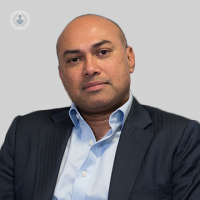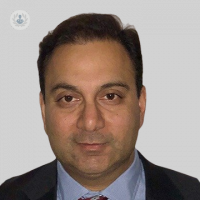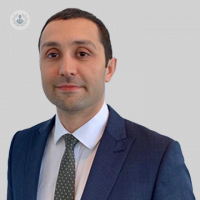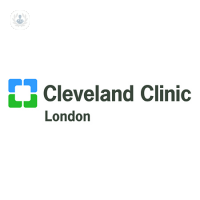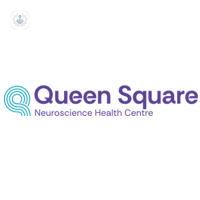What is oesophageal cancer?
Oesophageal cancer is a type of cancer that affects the oesophagus (gullet or food pipe), which is the long tube that carries food from the throat to the stomach. It occurs when abnormal cells grow in an uncontrollable way. It is more common in people in their 60s and 70s and occurs in men more than women.
What are the symptoms of oesophageal cancer?
The symptoms of oesophageal cancer include:
- Difficulty in swallowing (dysphagia) – this feels like a pain or burning sensation in the throat or chest.
- Indigestion – occurs when acid from the stomach goes back into the oesophagus.
- Heartburn – which is a burning chest pain after eating.
- Weight loss – follows as a result of not being able to eat food because of the pain.
- Pain in the throat - and behind the breastbone
- A persistent cough
- Dark poo – faeces may be almost black if the oesophagus bleeds from cancer.
What are the causes of oesophageal cancer?
The exact cause is unknown but persistent gastro-oesophageal reflux disease (GORD), smoking, excessive alcohol, being overweight and having an unhealthy diet are risk factors for the disease.
How is oesophageal cancer diagnosed?
The cancer is diagnosed using an endoscopy, which allows the doctor to see inside the oesophagus. The small, thin tube with a camera and light on the end is passed into the mouth and down towards the stomach. Sample tissues are removed so that they can be checked under a microscope. The other test used is a barium swallow, where the white liquid is swallowed and X-rays are taken. The barium highlights the lining of the oesophagus so it can show whether there is anything blocking the oesophagus.
What are the treatments for oesophageal cancer?
The treatment plan for oesophageal cancer depends on where in the oesophagus the cancer is and how big it is. It depends on whether the cancer has spread anywhere else in the body and on the patient’s general health.
If it is diagnosed during an early stage, it may be possible to cure it with the surgical removal of the affected area of the oesophagus. Chemotherapy kills the cancerous cells and shrinks the tumour.
If the cancer is diagnosed at a later stage, the cure is not achievable but surgery, chemotherapy and radiotherapy can be used to keep cancer under control and relieve symptoms.
What’s the outlook for oesophageal cancer?
The outlook depends on the stage of oesophageal cancer. It depends on how far the disease has spread, the age and the general health of the patient.
Cáncer del esófago
What is oesophageal cancer?
Oesophageal cancer is a type of cancer that affects the oesophagus (gullet or food pipe), which is the long tube that carries food from the throat to the stomach. It occurs when abnormal cells grow in an uncontrollable way. It is more common in people in their 60s and 70s and occurs in men more than women.
What are the symptoms of oesophageal cancer?
The symptoms of oesophageal cancer include:
- Difficulty in swallowing (dysphagia) – this feels like a pain or burning sensation in the throat or chest.
- Indigestion – occurs when acid from the stomach goes back into the oesophagus.
- Heartburn – which is a burning chest pain after eating.
- Weight loss – follows as a result of not being able to eat food because of the pain.
- Pain in the throat - and behind the breastbone
- A persistent cough
- Dark poo – faeces may be almost black if the oesophagus bleeds from cancer.
What are the causes of oesophageal cancer?
The exact cause is unknown but persistent gastro-oesophageal reflux disease (GORD), smoking, excessive alcohol, being overweight and having an unhealthy diet are risk factors for the disease.
How is oesophageal cancer diagnosed?
The cancer is diagnosed using an endoscopy, which allows the doctor to see inside the oesophagus. The small, thin tube with a camera and light on the end is passed into the mouth and down towards the stomach. Sample tissues are removed so that they can be checked under a microscope. The other test used is a barium swallow, where the white liquid is swallowed and X-rays are taken. The barium highlights the lining of the oesophagus so it can show whether there is anything blocking the oesophagus.
What are the treatments for oesophageal cancer?
The treatment plan for oesophageal cancer depends on where in the oesophagus the cancer is and how big it is. It depends on whether the cancer has spread anywhere else in the body and on the patient’s general health.
If it is diagnosed during an early stage, it may be possible to cure it with the surgical removal of the affected area of the oesophagus. Chemotherapy kills the cancerous cells and shrinks the tumour.
If the cancer is diagnosed at a later stage, the cure is not achievable but surgery, chemotherapy and radiotherapy can be used to keep cancer under control and relieve symptoms.
What’s the outlook for oesophageal cancer?
The outlook depends on the stage of oesophageal cancer. It depends on how far the disease has spread, the age and the general health of the patient.
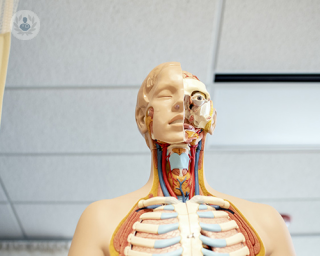

Oesophageal cancer: early signs and survival rate
Mr Krishna Moorthy
2024-12-21
Persistent acid reflux is a risk factor in developing oesophageal cancer. We've asked one of our top surgeons Mr Krishna Moorthy to explain the early signs of the disease, the survival rate and whether it is curable. Mostrare di più


All about oesophageal cancer
Dr Aathavan Loganayagam
2024-12-21
Oesophageal cancer is a rare type of cancer that grows in your oesophagus (the 'food pipe', or tube) that leads from the throat to the stomach. The earlier oesophageal cancer is diagnosed and treated, the better the outcome. So, how is this difficult and challenging type of cancer dealt with? Dr Aathavan Loganayagam, a leading gastroenterologist, presents a concise guide about oesophageal cancer. Mostrare di più


Oesophageal cancer: Your questions answered
Dr Sameer Zar
2024-12-21
In the UK, more than 9,200 people are diagnosed with oesophageal cancer each year, which is a cancer that causes extreme difficulty when it comes to swallowing food and even liquids. Here, renowned consultant gastroenterologist Dr Sameer Zar provides an expert insight into oesophageal cancer, including what changes the cancer causes in the body, and how the cancer is diagnosed and treated. Mostrare di più


Using artificial intelligence to detect oesophageal cancer
Dr Rehan Haidry
2024-12-21
Recent medical innovation has seen the use of artificial intelligence (AI) in performing endoscopic imaging in the screening for pre-cancerous and cancerous abnormalities. Such technology presents a way to improve the detection of early oesophageal cancer. Dr Rehan Haidry is an innovative gastroenterologist and endoscopist, who is actively shaping this future of cancer detection, and here he discusses how AI fits into his field. Mostrare di più
Medici esperti in Cáncer del esófago
-
Professor Muntzer Mughal
Chirurgia generaleEsperto in:
- Cáncer del esófago
- Chirurgia del cancro gastrico
- Chirurgia della cistifellea
- Disfagia
- Fistola tracheoesofagea
- Chirurgia dell'ernia iatale
-
Mr Krishna Moorthy
Chirurgia generaleEsperto in:
- Riflusso gastrico
- Chirurgia bariatrica
- Cáncer del esófago
- Chirurgia del cancro gastrico
- Ernia
- Laparoscopia urologica
-
Mr Ashish Rohatgi
Chirurgia generaleEsperto in:
- Cáncer del esófago
- Chirurgia del cancro gastrico
- Calcoli vescicolari o biliari
- Riflusso gastrico
- ernia iatale
- Ernia
-
Mr P S Jambulingam
Chirurgia generaleEsperto in:
- Perdita di peso
- Chirurgia dell'ernia iatale
- Calcoli vescicolari o biliari
- Chirurgia dell'ernia inguinale
- Chirurgia del cancro gastrico
- Cáncer del esófago
-
Mr Nima Abbassi-Ghadi
Chirurgia generaleEsperto in:
- Riflusso gastrico
- Cáncer del esófago
- Calcoli vescicolari o biliari
- Ernia
- Endoscopia
- Laparoscopia urologica
- Visualizzare tutti

Bath Clinic - part of Circle Health Group
Bath Clinic - part of Circle Health Group
Claverton Down Road, Combe Down, Bath BA2 7BR
No existe teléfono en el centro.
Se utilizzi questo numero di Top Doctors autorizzi al trattamento dei dati a fini statistici e commerciali. Per maggiori informazioni, leggi la nostra l’informativa sulla privacy
Top Doctors

Cleveland Clinic Moorgate Outpatient Centre
Cleveland Clinic Moorgate Outpatient Centre
55 Moorgate, EC2R 6BH
No existe teléfono en el centro.
Se utilizzi questo numero di Top Doctors autorizzi al trattamento dei dati a fini statistici e commerciali. Per maggiori informazioni, leggi la nostra l’informativa sulla privacy
Top Doctors

Amethyst: The Queen Square Neuroscience Health Centre
Amethyst: The Queen Square Neuroscience Health Centre
42-43 Queen Square London WC1N 3AQ
No existe teléfono en el centro.
Se utilizzi questo numero di Top Doctors autorizzi al trattamento dei dati a fini statistici e commerciali. Per maggiori informazioni, leggi la nostra l’informativa sulla privacy
Top Doctors
-
Bath Clinic - part of Circle Health Group
Claverton Down Road, Combe Down, Bath BA2 7BR, BathEsperto in:
- Analisi cliniche
- Tumori
- Cancro al seno
- Cancro alla prostata
- Cardiologia
- Cataratta
-
Cleveland Clinic Moorgate Outpatient Centre
55 Moorgate, EC2R 6BH, Central LondonEsperto in:
- Apparato digestivo
- Cardiologia
- Dermatologia
- Diagnostica per immagini
- Diagnostica
- Ginecologia e Ostetricia
-
Amethyst: The Queen Square Neuroscience Health Centre
42-43 Queen Square London WC1N 3AQ, Central LondonEsperto in:
- Angiologia e Chirurgia vascolare
- Dolore oncologico
- Neurochirurgia
- Neurologia
- Oncologia medica
- Trattamento del cancro
- Visualizzare tutti

